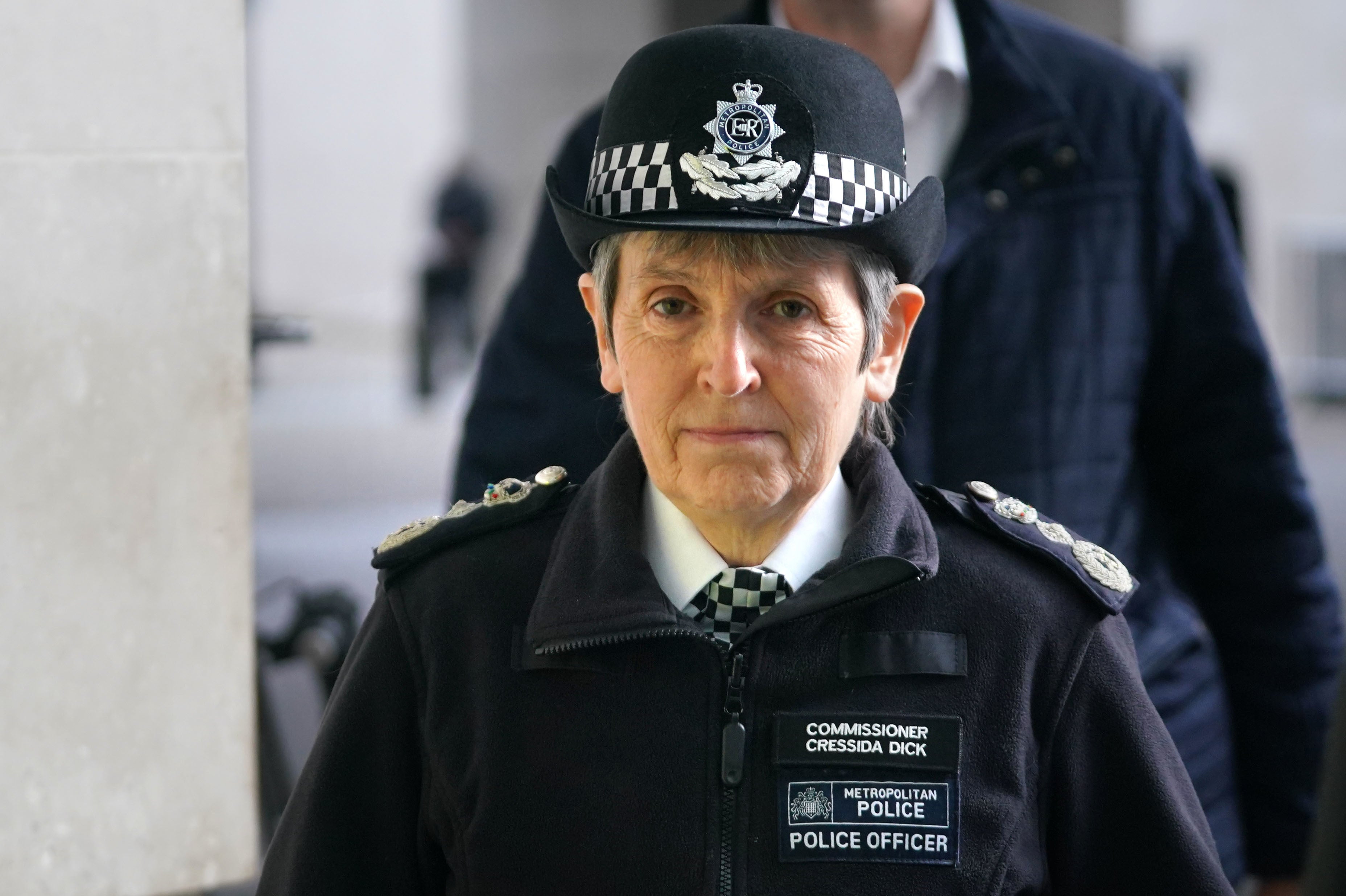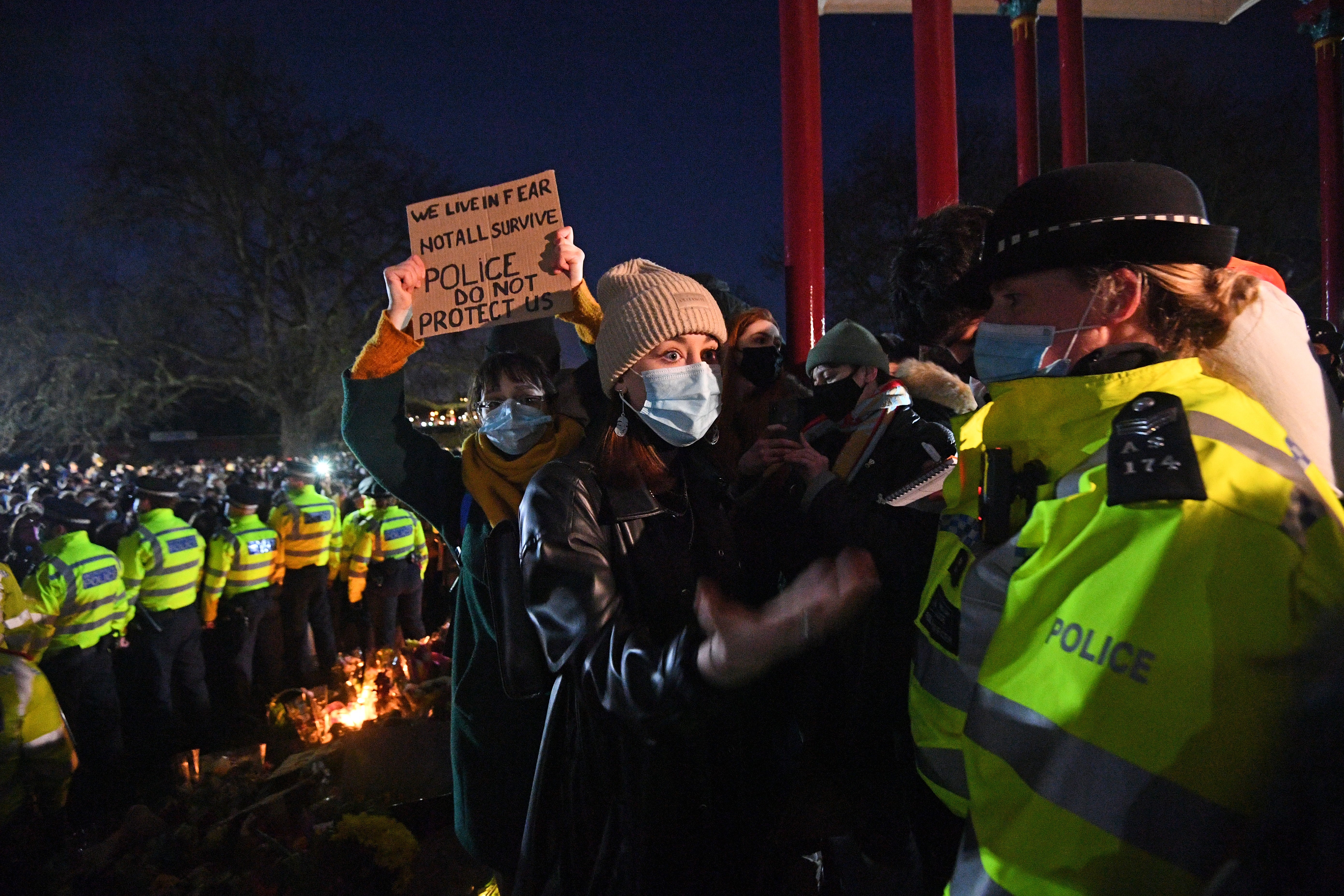How Cressida Dick refused to resign as Metropolitan Police commissioner through succession of scandals
‘No one likes us, we don’t care,’ former commissioner quipped to a police conference, Lizzie Dearden writes

Dame Cressida Dick once quipped that the Metropolitan Police was like Millwall FC, quoting its chant: “No one likes us – we don't care.”
It fits as a personal mantra for the former commissioner, who resisted numerous calls to resign during her tenure.
Perhaps it was unsurprising that the officer who remained at Scotland Yard after overseeing the 2005 operation that led to the fatal shooting of Jean Charles de Menezes should be so apparently impervious to criticism.
For a long time, Dame Cressida’s strategy worked – her contract as commissioner was extended by two years in September despite a growing number of scandals.
Her resistance continued until the last possible moment, with her telling BBC Radio London hours before she stepped down that she had “absolutely no intention of going”.
A press statement announcing the resignation made clear she was unwilling to step down, but was “left no choice” by the mayor of London, Sadiq Khan.
The “huge sadness” that Dame Cressida expressed will be shared by many officers in the Metropolitan Police, who viewed her as a fair and capable leader who stood up for them, even in the worst of times.
But from the outside, her continued position as commissioner has looked inexplicable for some time, with anger even growing among police officers outside London that the Met was dragging all of them through the mud.
The misogyny and racism exposed by a police watchdog report last week may have been the straw that broke the camel’s back, revealing conduct that no inquiry into “standards and culture” can wipe from the public’s consciousness.
Dame Cressida had maintained her post during a barrage of scandals, from the murder of Sarah Everard to an officer outed as a member of a neo-Nazi terrorist group, rashes of fatal teenage stabbings, and the endless murders of women, including one under the supposed protection of a Stalking Protection Order.
Even after arresting one of its own officers for Ms Everard’s murder, Scotland Yard refused to facilitate a vigil for her and threatened the organisers with £10,000 fines and prosecution. The force is currently fighting a legal challenge brought by women’s campaigners, which will be unflattering no matter who wins the case.

The commissioner was also haunted by ghosts of the past, as the Metropolitan Police’s previous wrongdoing was pored over by a succession of damning inquiries.
In December, an inquest found that the force had failed to prevent the murders of victims targeted by the serial killer Stephen Port, even after he dumped a body outside his own flat and rang 999.
Police faced homophobia allegations after failing to link the deaths of his victims, all of whom were gay men, and telling relatives they had overdosed. Many of the officers disciplined over the investigation have since been promoted.
Last June, a report on the unsolved murder of the private detective Daniel Morgan accused the force of continuing “institutional corruption”. Scotland Yard denied that and Dame Cressida rebuffed calls to resign.
The Undercover Policing Inquiry is continuing to hear evidence of Metropolitan Police officers’ unethical and exploitative relationships with the women they were spying on while embedded in peaceful political organisations and protest groups.
In 2020, the Black Lives Matter movement brought renewed focus on the force’s discriminatory use of stop and search and the disproportionate use of force against black people.
Accusations of institutional racism have persisted since the 1999 Macpherson report into the murder of Stephen Lawrence, and critics see little progress despite countless pledges of change.
The problems in what one staff member recently described to me as “the dustbin fire that is the Metropolitan Police” will not be solved by Dame Cressida’s resignation, but for those wronged by the force it is an important step towards accountability.
The next commissioner has not yet been chosen, and will have an unenviable job on their hands restoring public trust.






Join our commenting forum
Join thought-provoking conversations, follow other Independent readers and see their replies
0Comments